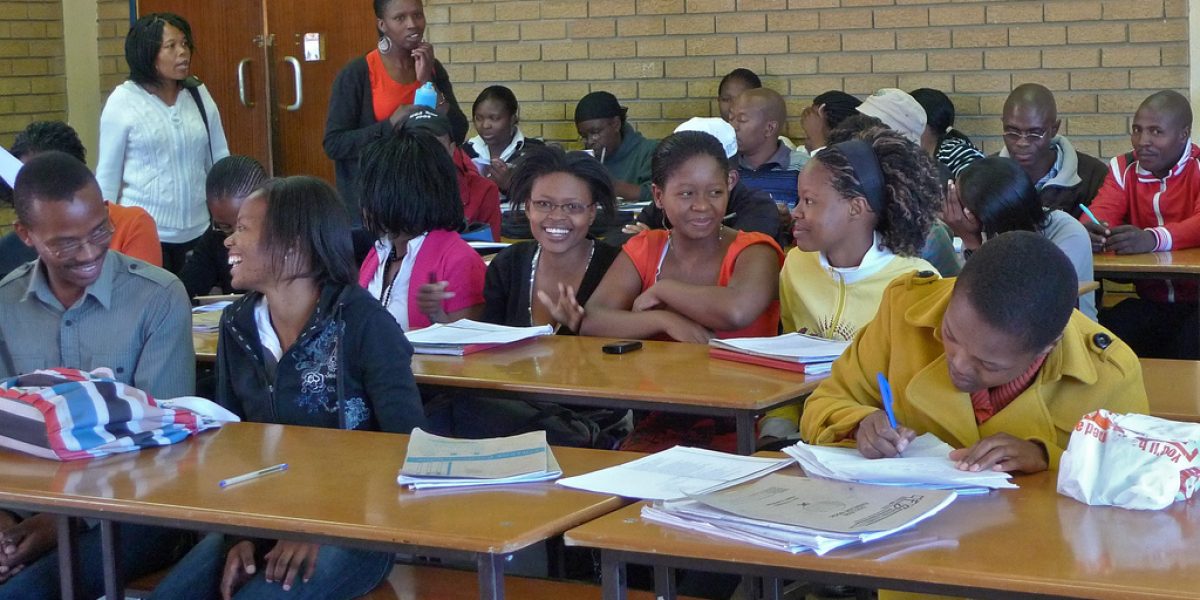The education minister, Naledi Pandor, has expressed the official position by saying that “the aim of reciting the pledge is to internalise those values we as South Africans have accepted as important. We agreed to enshrine these rights in our Constitution.” (Internalise”, one imagines, is official-speak for “learn” and “accept”.)
If the intention of the pledge is to teach or instil values, it is misplaced. The pledge will become a mantra, or a symbol like the flag or national anthem, and reciting it will be a ritual. Rituals may easily be performed without conviction or understanding – they are a form of rote learning. Consider this: our national anthem, Nkosi Sikelel’ iAfrika, was written as a prayer for God’s blessing on Africa, yet it now serves South Africa’s avowedly secular constitutional order. The framers of the constitution did not want to offend atheists by inserting an invocation to “almighty God” in the constitution, but were quite happy for a religious song to represent the constitutional order. Today, we pretty much ignore Enoch Sontonga’s words, or assign them a new (symbolic) meaning and make them a recognisable symbol for contemporary South Africa.
But rituals and symbols are important. They enhance the sense of belonging to a community, and are an attachment to our beliefs. First, though, we must want to feel part of that community or hold these beliefs. So a pledge is an affirmation – not a learning aid. It ‘externalises’ our values, as the Minister might say.
For any pledge to be effective, two things are necessary. The first is education. If we want young people to understand and believe in the constitution, it needs to be taught. This is being done in schools, even if imperfectly. In particular, we need youngsters to understand that our constitution gives them the political right to disagree and dissent, even if they are in a minority of one, and that it imposes responsibilities. But that’s the easy part.
The second is to inspire young people to feel that the constitution means something profound for them. Over a century ago, Frederick Douglass, an eloquent proponent for the abolition of slavery in America (and onetime slave), wrote that he could see no purpose in celebrating the 4th of July – a potent symbol and ritual of American nationhood: “I have no patriotism. I have no country. What country have I? The institutions of this country do not know me, do not recognise me as a man. I have not – I cannot have – any love for this country, as such, or for its constitution.” The conservative American commentator, Dinesh d’Souza described these words as “honourable treason”, for they emphasise that “one cannot be a good citizen in a bad country”.
Today’s ruling generation faces big choices: what example are they setting for our youth? South Africa should remember what the Nigerian writer Chinua Achebe said about the problems in his country: “The trouble with Nigeria is simply and squarely a failure of leadership”.
South Africa’s leaders need to understand the scale of their responsibilities. How can we seriously expect youngsters to honour the country’s institutions when a number of parliamentarians sit in the very institution they have defrauded in a travel voucher scam? Or when MPs cheer one of their number as he enters prison on a fraud conviction? How do we expect them to keep a straight face when they hear the phrase “people’s parliament” knowing that MPs report to their party bosses with far more devotion than to the “people” they are meant to serve?
To be loyal to a country or institution does not mean that it is perfect. We can have faith in a country beset by enormous difficulties, and be determined to resolve them. But that faith is eroded when problems are denied or ignored, or are compounded by those in power. South Africa has an appalling crime record. While conscientious citizens will help to fight crime, they become cynical where the authorities deny the scale of the problem and trivialise it (or suggest it’s a “perception”).
We also need to put a stopper on triumphalism. Our institutions, good as they might be, are only as good as the integrity with which we operate them: they are not perfect and can be improved. In fact, we are doing so right now, as the pernicious practice of floor crossing seems finally to be on the way out. But to wax on about how we have “the best constitution in the world” or our “obviously thriving nonracial democracy” easily confuses justifiable pride in our achievements thus far (in establishing democracy and writing a constitution) with a sense of their durability and invulnerability. Pride, as the adage says, comes before a fall.
Perhaps most important is the responsibility of ordinary South Africans to behave as good citizens: to demand honesty from our elected representatives, state agencies, and private business, and to match it with our own behaviour. We need to make South Africa a country worthy of good citizenship. Without doing so, any pledge for our youth to recite will be so much hot air.







